The female-only surfing sessions where women feel free
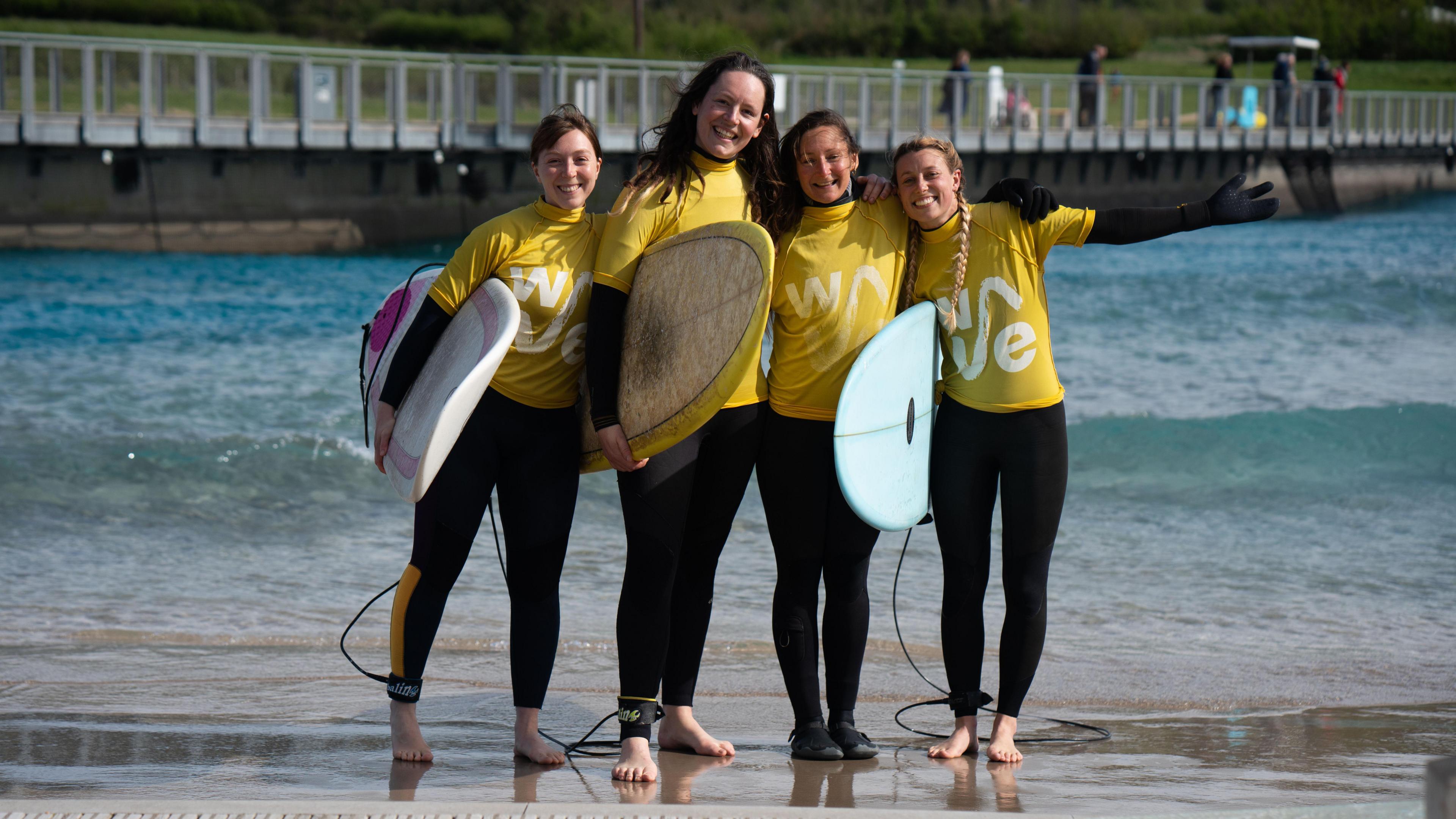
Women surfing at The Wave in Bristol, a centre that churns out consistent, artificial waves
- Published
When Laura Crane told her school careers adviser at the age of 10 that she wanted to become a surfer, she was met with a laugh.
"That's very sweet Laura, but you're from the UK and girls don't surf."
Undeterred, she looked the careers adviser dead in the eye and said: "I am going to be a professional surfer."
Crane, now 30, has lived up to her word. She is a professional big wave surfer – a category that involves waves 20ft (6m) and over – and is one of Britain's best-known names in surfing.
She has taken on enormous waves in surf hotspots around the world, including the monster 60ft (18m) waves in Portugal's Nazaré.
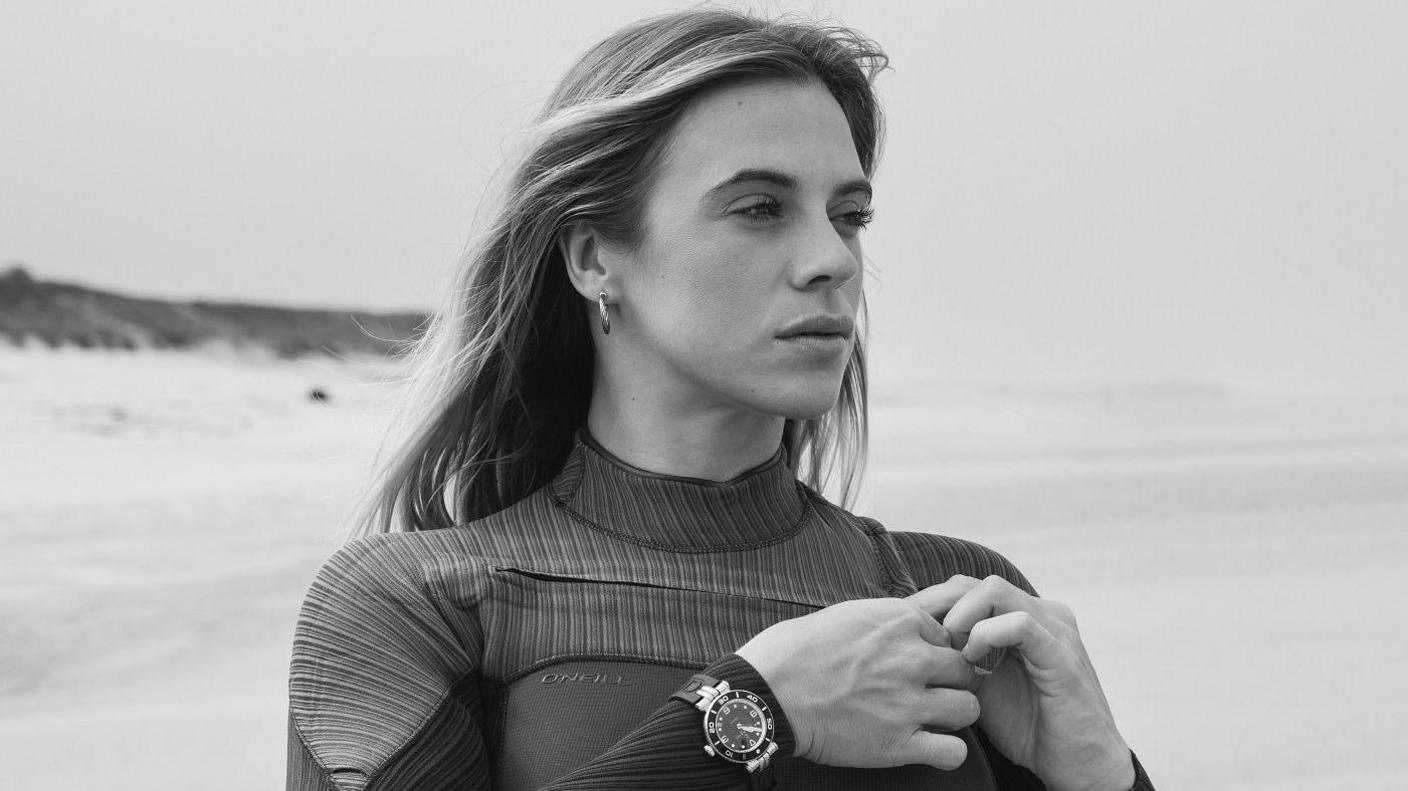
Professional big wave surfer Laura Crane says she has overcome sexism in the sport
Perhaps her most significant challenge, however, has been carving a place for herself in an industry that for years sidelined women and valued appearances over athleticism.
"I remember signing my first professional contract at 12," said Crane, who is originally from Bristol but moved to north Devon aged seven, where she first began surfing.
"I was so excited at the prospect of travelling the world and surfing crazy waves.
"But it became pretty apparent on that first trip with my sponsors that I was a glorified bikini model. It knocked my confidence completely."
Sexism, she said, was one of her biggest barriers to achieving her goals.
"It made me feel like my only value was my physical appearance," she said. "It was very tough to be a female athlete and gain recognition as a physical force."
In the UK, women make up just 20% of surfers. Crane is a growing number of women working towards changing that.
At The Wave, an inland surfing centre just outside Bristol that delivers consistent, artificial waves, women are being encouraged to take up surfing in female-only "Sister Sessions". Seven of the sessions are being held this year.
"There's something really powerful about just being in the water with other women," said Jenny Jones, former Olympic snowboarder turned avid surfer.
"That sense of community spirit builds quickly – people are nervous, then laughing and chatting. It helps you focus on progressing instead of spending the whole time worrying."
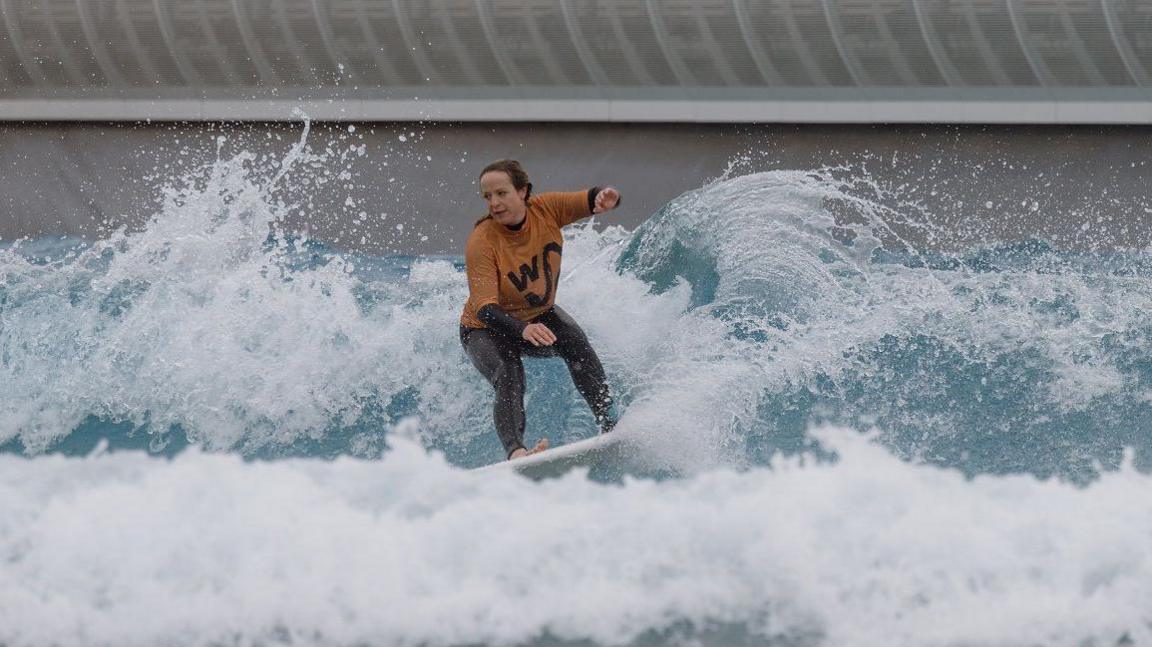
Jenny Jones, former Olympic snowboarder, says women bond quickly when surfing together
Jones, who picked up surfing while recovering from a snowboarding injury, said she sees huge value in inclusive facilities.
"If it wasn't for a dry slope near Bristol, I don't know if I would have ended up snowboarding professionally," said Jones, whose bronze in slopestyle at the Sochi Winter Olympics in 2014 saw her become the first ever Briton to win a medal in a snow event.
"And that's the thing – The Wave is that kind of facility," she added. "We might even see an Olympian come out of it. But more importantly, it's about having the chance to try."
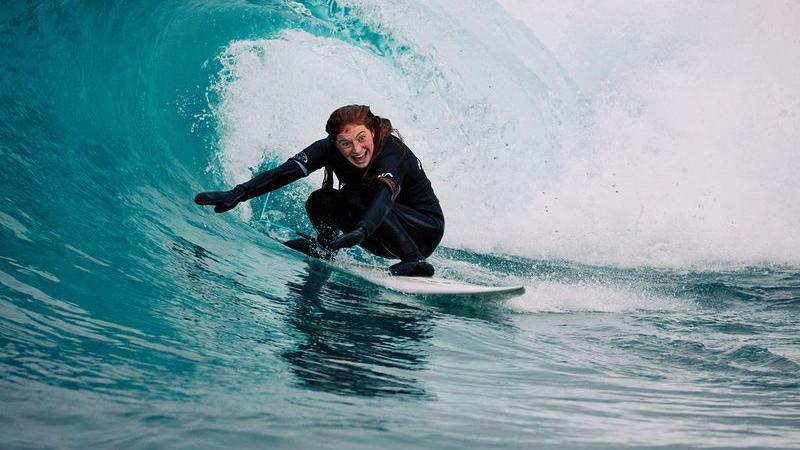
Seven female-only surf sessions are being held at The Wave in 2025
For Charlie Rowen, who chairs Bristol Girls Surf Club, the sessions provide a space that's both physically and emotionally freeing.
"It really takes the pressure off," she said. "Line-ups [where surfers wait for waves and take turns catching them] can be intimidating. Just knowing there's someone behind you waiting for a wave can make you tense up.
"But surfing with all women - it lifts that. It helps you have fun."
Ms Rowen said that it's not just beginners who benefit.
"We've seen that even more advanced surfers feel pushed and supported," she said. "And for people like us in the city who can't get to the coast regularly, the chance to practise consistently is invaluable."
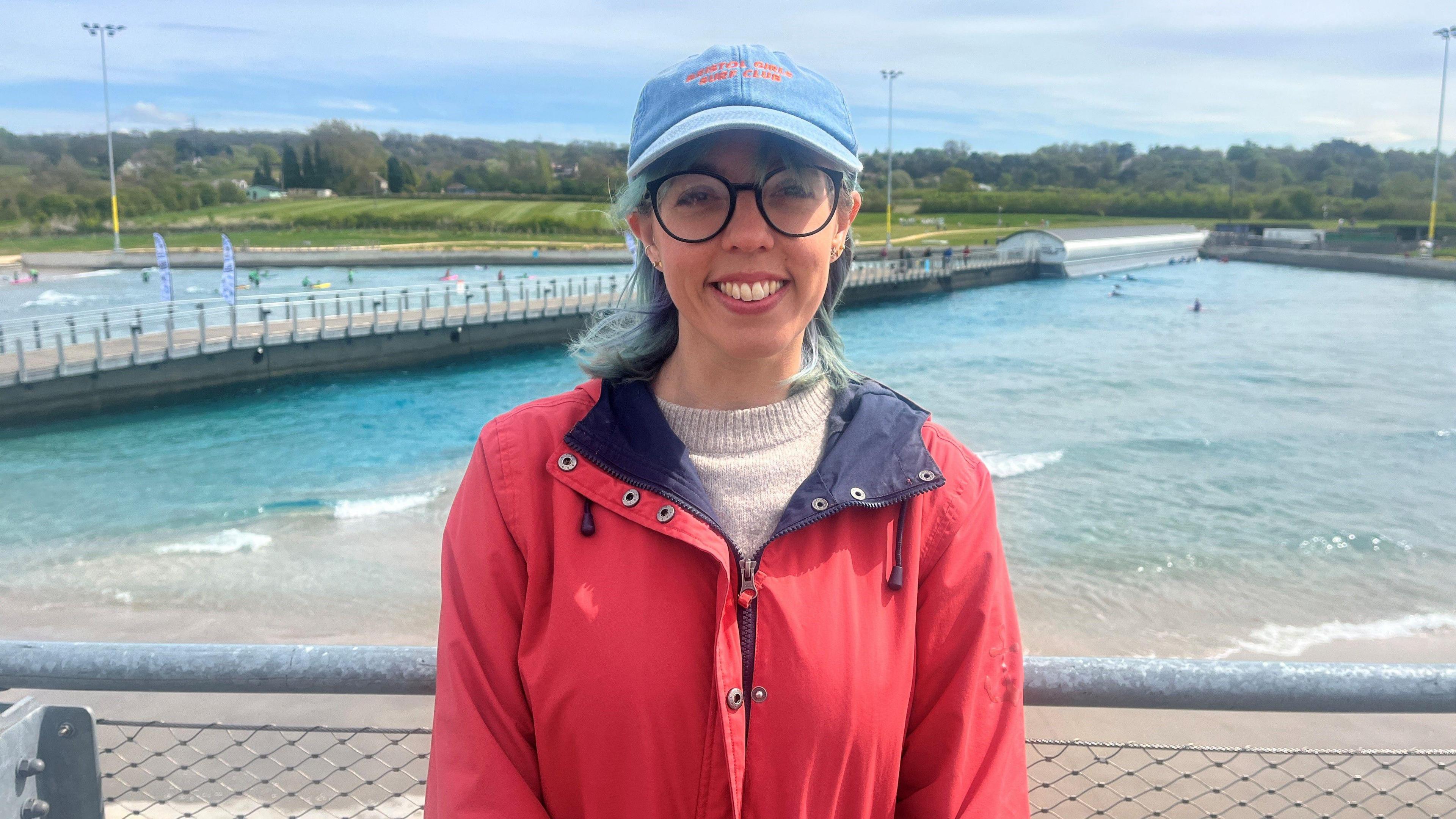
Charlie Rowen says the women-only sessions help "take the pressure off"
For Zoe Smith, a para surfer from Bournemouth, the journey into the sport began when she lost her leg in a car accident in 2015.
She had several surgeries before eventually having her lower leg amputated.
Searching for a new outlet, she booked a beginner session at The Wave post-lockdown.
"Surfing gave me a kind of lightness I'd lost on land," she said.
"At first, I had to drill holes in the foot shell of my prosthetic so water could drain. It was like dragging an anchor around.
"But the environment here gave me the safety and space to figure it all out."
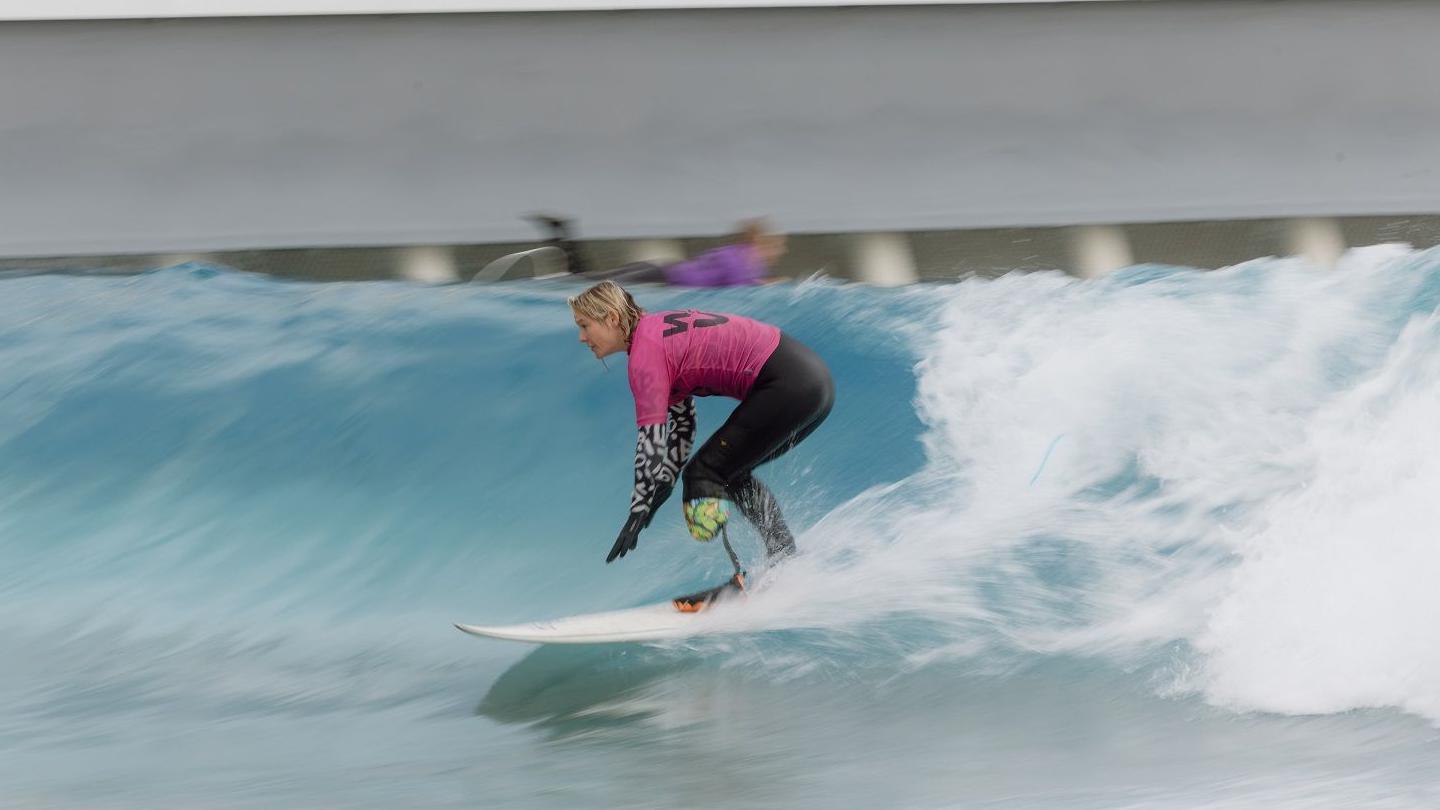
Zoe Smith learned to surf at The Wave after losing her leg in a car crash
Now the reigning world champion in her para division, Smith credits The Wave not only for its accessibility but for the confidence it's helped her build.
"I felt disabled," she said. "Surfing gave me purpose again. It's not just about competition. It's about reclaiming the freedom I thought I'd lost.
"And sessions like these create a ripple effect. Women meet, become friends, and make space for each other in the line-up. It's not exclusive - it's deeply inclusive."
That shift, from exclusion to inclusion, is what Laura Crane has long fought for.
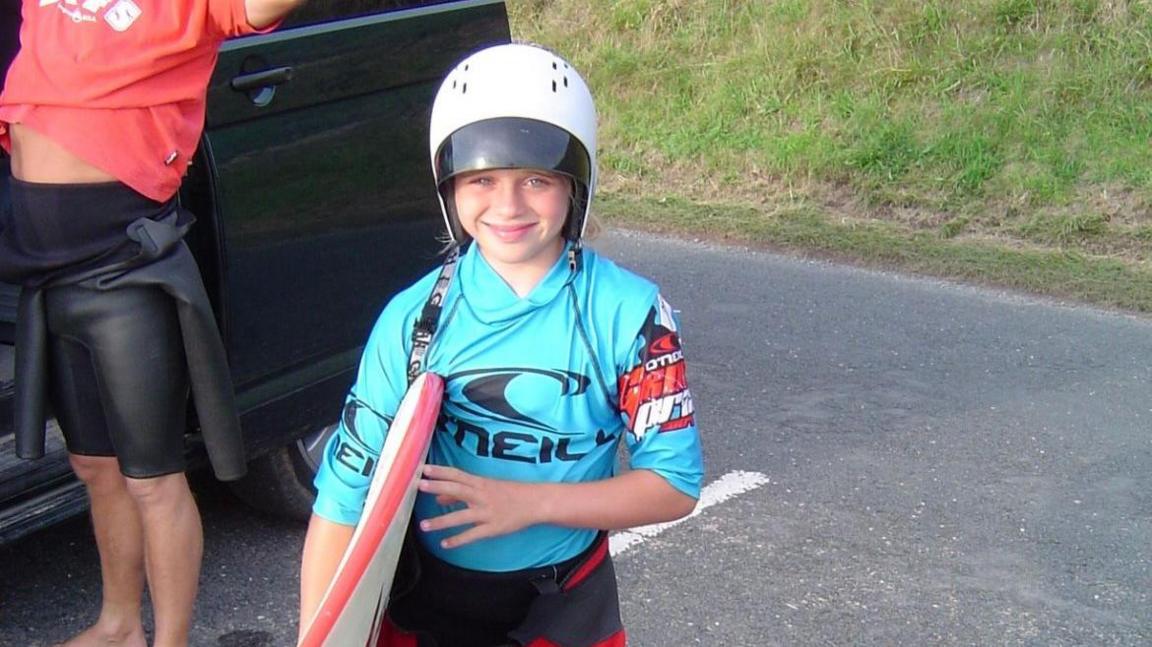
Laura Crane's love of surfing began when she was aged just seven
"The landscape for women in surfing has changed dramatically," Crane said.
"We're seeing equal prize money, more women being signed for their talent, not their looks. We need the best athletes at the top of the game – and that's happening."
Reflecting back on her younger self, Crane said: "Sometimes the world isn't ready for you. But you have to be the change that it's not quite ready to see."
Get in touch
Tell us which stories we should cover in Bristol
Follow BBC Bristol on Facebook, external, X, external and Instagram, external. Send your story ideas to us on email or via WhatsApp on 0800 313 4630.
Related topics
- Published2 April 2024
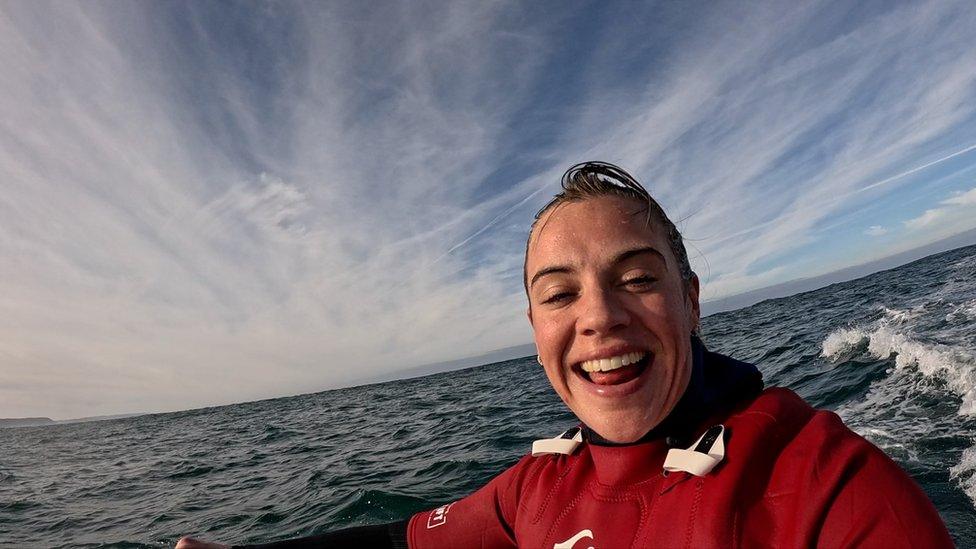
- Published16 July 2021
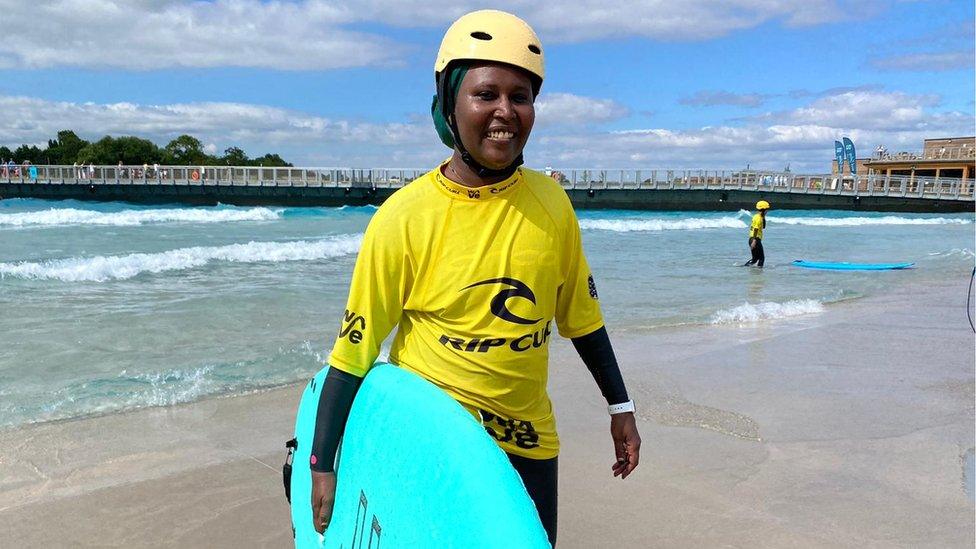
- Published23 December 2023
